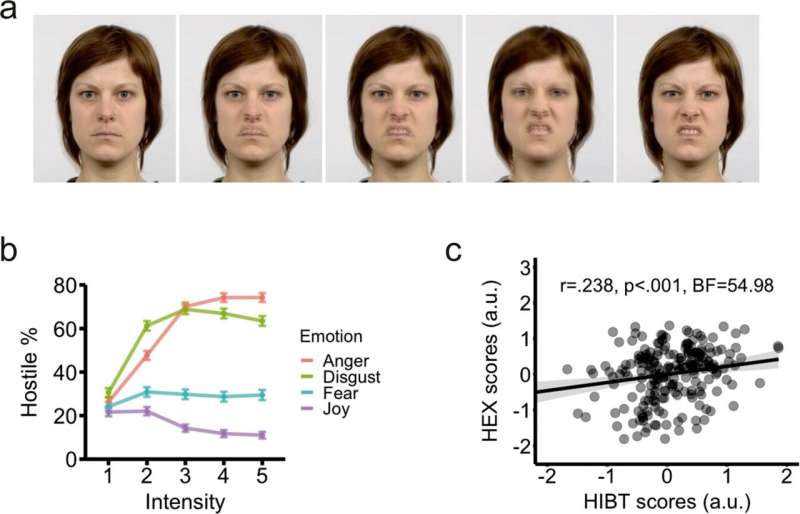This article has been reviewed according to Science X's editorial process and policies. Editors have highlighted the following attributes while ensuring the content's credibility:
fact-checked
peer-reviewed publication
trusted source
proofread
Study shows similarities between people with aggressive and psychopathic tendencies

People with more aggressive and psychopathic tendencies adopt hostile behaviors quickly, but they find it difficult to abandon these behaviors when they are no longer adaptive or practical. Although this was already suspected, a study published in the journal Translational Psychiatry confirms this hypothesis for the first time, thanks to an extensive mathematical methodology applied to a task that measures hostile responses explicitly. The study has been led by experts from the Individual Differences Lab (IDLab) research group at the Faculty of Psychology and the Institute of Neurosciences of the University of Barcelona (UBNeuro).
The study applies a mathematical model that unravels which cognitive mechanisms play the most important role in people's acquisition of these responses. The study, carried out with 256 volunteers, evaluates several aspects related to aggression, hostility, reward and punishment, among others. Experts from the University of Lübeck (Germany) and the Forensic Psychiatric Center Pompestichting and Radboud University Nijmegen (The Netherlands) have also participated in the study.
A new perspective on aggression and psychopathy
"The most unexpected finding was to identify the same pattern both in people with high aggressiveness, which is characterized by more impulsive tendencies, and in those with high psychopathy, which is defined by more controlled or cold-blooded antisocial behavior," says Macià Buades-Rotger, first author of the article and lecturer at the Department of Clinical Psychology and Psychobiology of the UB's Faculty of Psychology.
This finding challenges some long-held assumptions pointing to distinct psychological and neurobiological mechanisms in aggression and psychopathy. "These two traits, aggression and psychopathy, are similar and obviously correlated, but they are usually assumed to be characterized by distinct psychological and neurobiological mechanisms," says Professor David Gallardo-Pujol, head of the IDLab.
"The new study, however, reveals that they are actually not so different and that both can lead to the acquisition of hostile behavior through the learning processes," the authors note.
"Therefore, treatments that work for people with psychopathy, such as emotional regulation training, could potentially work for people with anger management issues. Clearly, studies in clinical samples would be necessary to see if this were the case," the authors conclude.
More information: Macià Buades-Rotger et al, Aggressive and psychopathic traits are linked to the acquisition of stable but imprecise hostile expectations, Translational Psychiatry (2023). DOI: 10.1038/s41398-023-02497-0



















